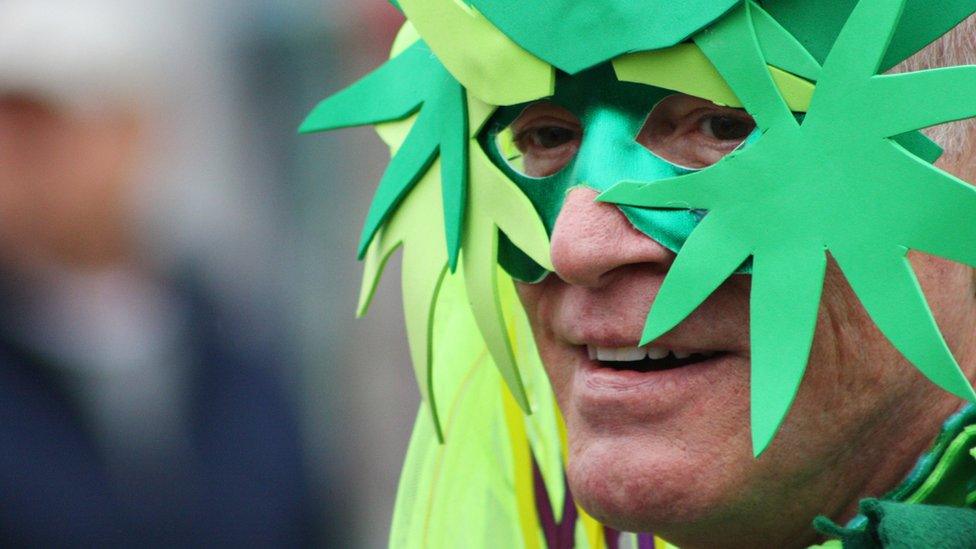Sunderland mum: 'I pay for medical cannabis to help my debilitating migraines'
- Published
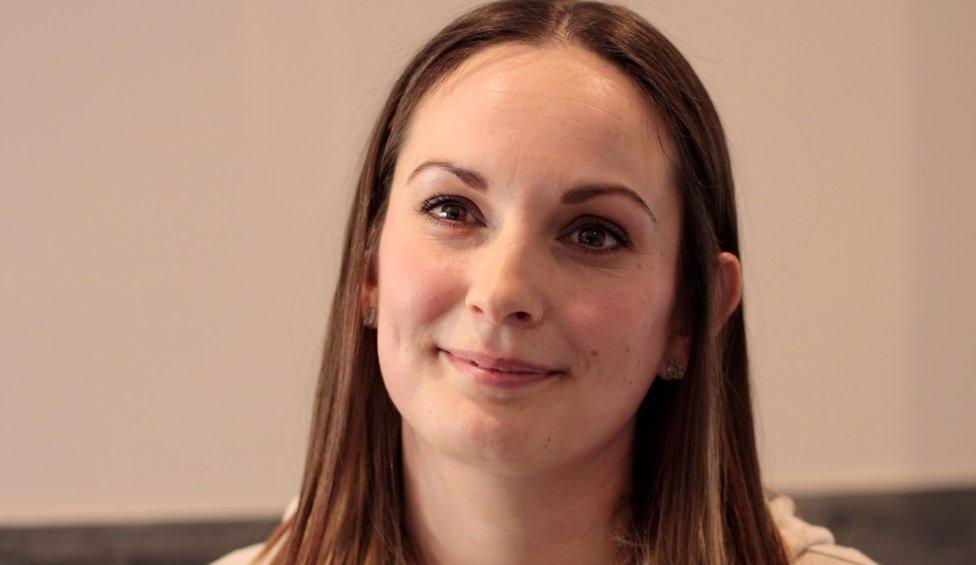
Mum-of-two Frances Pallas has suffered from severe migraines for 20 years
Frances Pallas' migraines were so bad that as a "last resort" she began to self-medicate with cannabis her husband would buy for her from street dealers.
"It was not an ideal situation," the 31-year-old Sunderland mum of two admitted.
"Sometimes it would help, but it didn't work very well.
"You can't get the dosage right and you don't know what you're going to get."
Cannabis is a Class B drug - it is illegal to possess, give away or sell and the penalty for possession is up to five years in prison, external. There are also possible side effects, such as paranoia and hallucinations.
Frances has suffered from "debilitating" headaches for more than two decades - at their worst, she could have four in a single week.
"Once an attack comes on, that's it," she said.
"You feel bad because you can't do much with the kids, you can't get out or do anything."
When she began to hear people talking about medical cannabis - which was legalised by the government in 2018, external for certain conditions including children and adults with rare, severe forms of epilepsy - she began to look into it online.
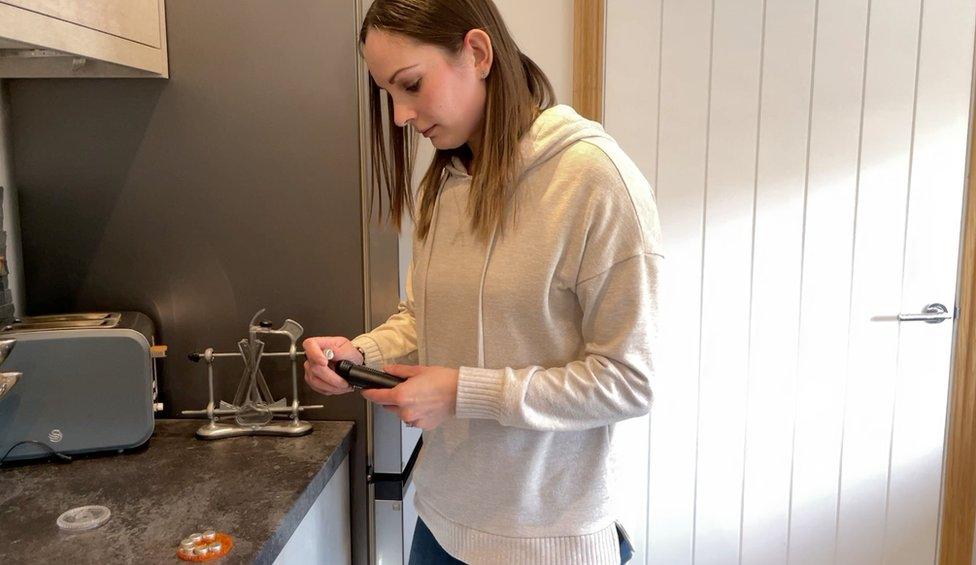
Frances had an online consultation with a private company which prescribed medical cannabis products
After a consultation with the private Sapphire Clinic - which became the UK's first medical cannabis clinic to be registered with health regulator the Care Quality Commission - she was given a prescription.
While the headaches have not gone away, Frances says life is "much better".
"I have THC oil three times a day, CBD oil three times a day and during a migraine attack I'll have the dried flower in a vape if it is really bad," she said.
"I can spend time with the children and I can go out without worrying about a migraine coming on because I can take cannabis preventatively.
"Most people are OK about it. You do have the odd comment off people who don't know much about it and think it's a bad thing, but mostly it's quite good."
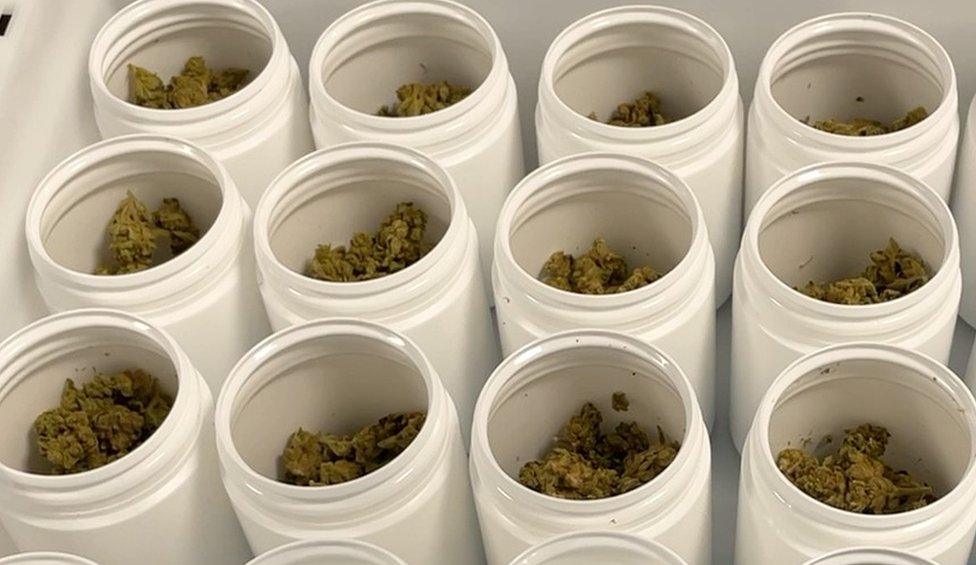
Sapphire Clinic says the number of patients it has on its books has significantly increased
Frances is part of a growing patient base in the UK who are prescribed the drug privately.
In 2020 Sapphire Clinic had 89 patients registered but as of March 2022, that had increased to 4,400.
It prescribes a range of medical cannabis products, some of which come from Curaleaf International, which has its manufacturing facility based in the North East of England and is the largest of its kind in the country.
The plants are grown in greenhouses in Portugal before being moved to a pharmaceutical facility in Spain to be processed, and then brought to the North East where they undergo final steps so the medication can be distributed.
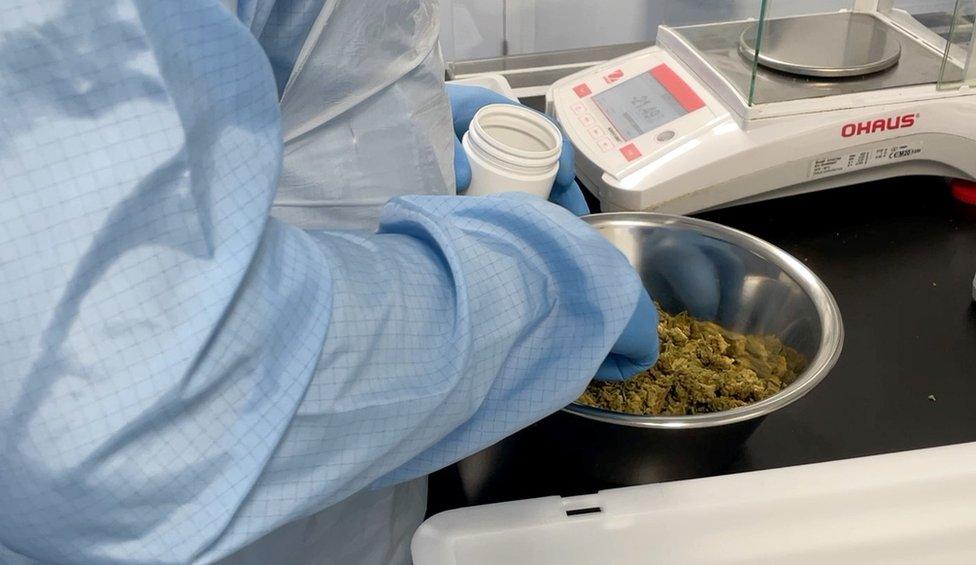
The products undergo a final manufacturing process at a facility in the North East of England
'More research needed'
Mikael Sodegren, managing director and academic lead at Sapphire Clinics, said he hoped that as the industry grows, more evidence can be gathered which could make it more widely available to treat a number of different conditions.
"We haven't had the funding, opportunities and desire to research cannabis like we have with other medicines over the last 50 years," he said.
"Prescriptions from the NHS are low in numbers at the moment and I think that's really a reflection of the fact that the conditions that are treated on the NHS are quite limited., external
"But to put this into perspective - the most common qualifying condition we see is chronic pain. Unfortunately there are no NHS [cannabis] options for chronic pain yet."
The National Institute for Health and Care Excellence (Nice), which handles treatment guidelines for the NHS, said it supported NHS England's call to collect evidence from both randomised controlled trials and observational studies.
It recommends further research - reflecting what it says is the overall lack of clinical and cost-effectiveness evidence for these products.
"Until there is clear evidence of the safety and effectiveness of cannabis-based medicinal products, specialist doctors need to consider individual patient circumstances, clinical condition and need, and to weigh up, with the patient or carer, the relative risks and benefits in choosing treatments," it said.
"It's also important to point out that even had Nice recommended widespread use of these products, it would not necessarily mean that they would become routinely available on the NHS."

Follow BBC North East & Cumbria on Twitter, external, Facebook, external and Instagram, external. Send your story ideas to northeastandcumbria@bbc.co.uk, external.
Related topics
- Published18 May 2021
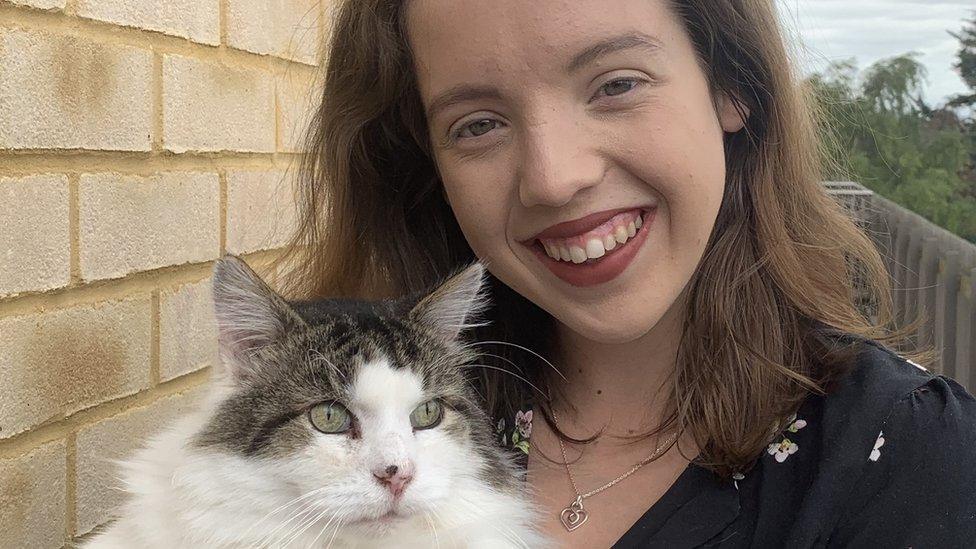
- Published1 December 2020
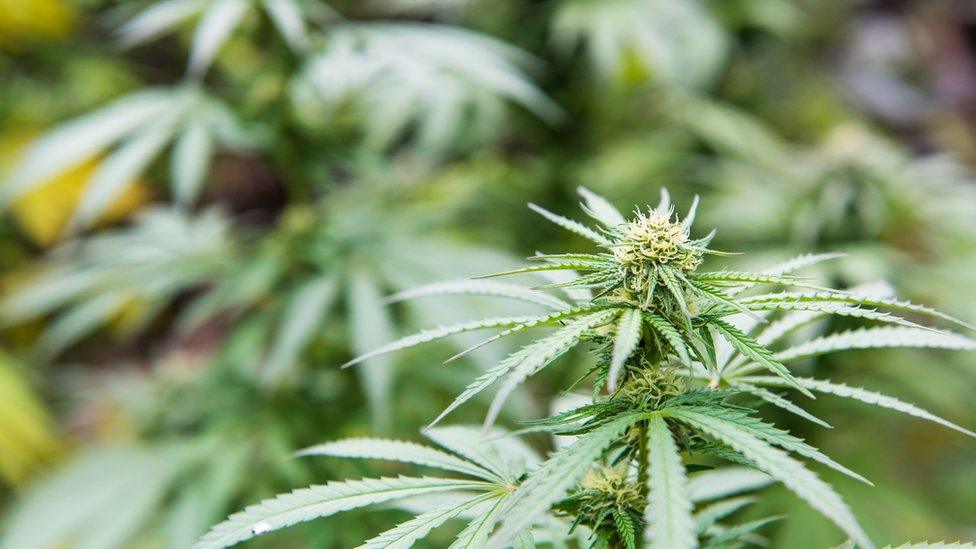
- Published18 August 2020
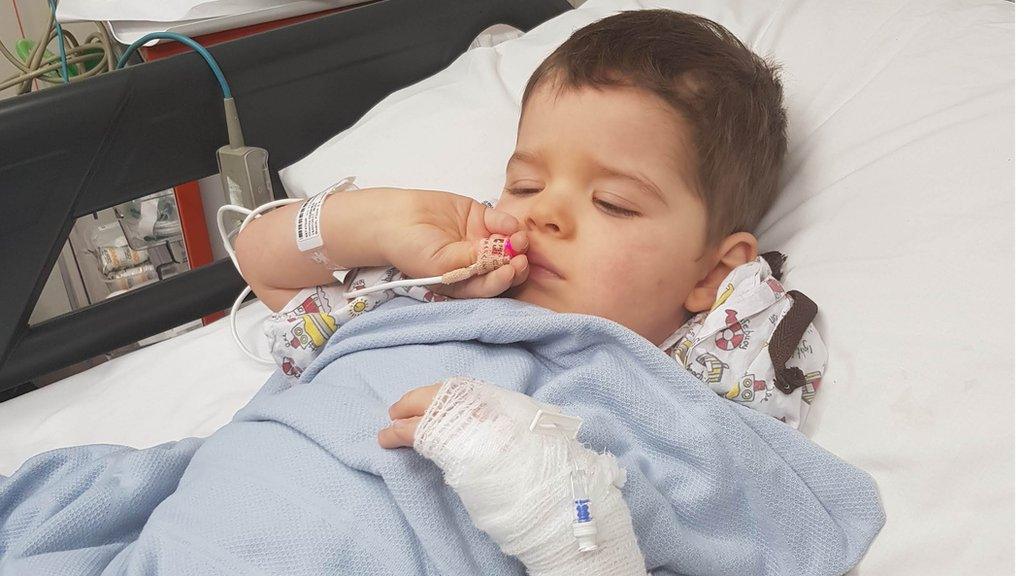
- Published28 February 2018
